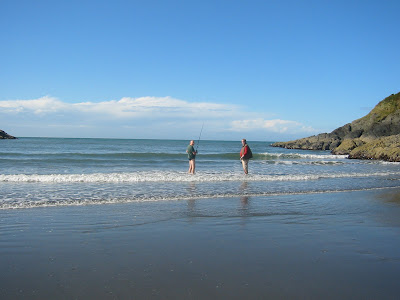
Hafal Neath Port Talbot hosts the penultimate local event on this summer's 22 county "Road to Recovery" campaign. Guests enjoy an edible version of the VW microbus while reinforcing the key messages of the campaign.
Among local issues in NPT the question of housing is raised, something I have discussed in the context of cost-effectiveness (see this post) but which deserves an airing in the wider context of the individual care plans which the Mental Health Measure will prescribe for all users of secondary mental health services.
Housing is self-evidently one of the most important "life areas" which care plans must cover but there has been a history of disconnected thinking which needs to be put right if truly responsive services are to be commissioned with individuals in mind.
At present there is a concerted move to "repatriate" patients from private high-dependency services often far from home. This is being driven significantly by cost-savings but is also usually the right thing to do. However, commissioners still need to take that further step back in planning services to see the whole recovery pathway for patients from hospital through to independent living...

...because clearing some blocks will only expose weaknesses elsewhere in the system.
The key to getting this right is two-fold:-
(i) Resources saved through repatriation are urgently required to meet the major deficits elswhere in the pathway (low secure services in particular). That, surely, was the point of the Minister's ring-fence on NHS mental health funding which MUST include funding from the Continuing Healthcare budget typically used to fund the out-of-county (sometimes out-of-Wales) placements. Otherwise the ring-fence is virtually valueless.
(ii) Commissioners need to work towards using individual care plans as the only point of reference for commissioning housing services. If that sounds simplistic then answer this - how can you justify any secondary mental health service in the future which does not feature in one or more individual care plans? The logical extension of this is the creation of NHS individual budgets - or, better still, combined health and social care individual budgets.
For Hafal's guide for commissioners of housing services see here.






















